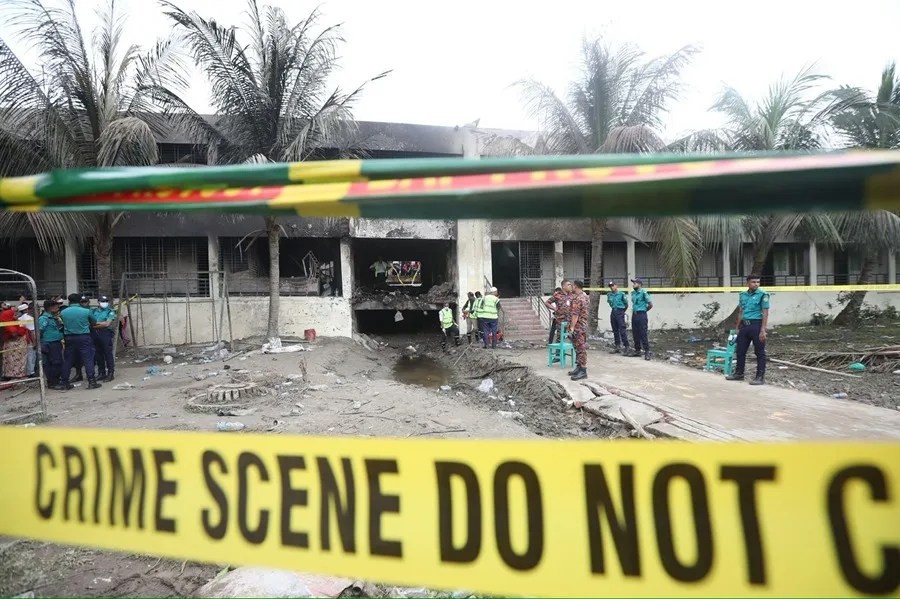Tragedy in Bangladesh: Military Aircraft Crash Claims Lives of Dozens of Children
A military training jet crashed into a school campus in Dhaka, Bangladesh, killing 27 people, including 25 children—exposing critical failures in aviation safety that demand global scrutiny.

In a devastating incident that underscores the risks posed by military aviation mismanagement, a Bangladeshi fighter jet crashed into a school campus in Dhaka on Monday, killing at least 27 individuals—25 of whom were young children under the age of twelve.
The aircraft, an FT-7 BGI fighter jet conducting routine training from the Kurmitola Air Base, suffered a mechanical failure shortly after takeoff. In an attempt to minimize casualties, the pilot diverted the failing plane away from denser residential areas but ultimately crashed into the Milestone School and College building in Uttara.
How Many More Tragedies Before Accountability?
This heart-rending catastrophe brings into sharp focus the lethal consequences when military institutions lack rigorous oversight and maintenance protocols. With scores of children suffering severe burn injuries and families mourning lost loved ones, one must ask: How many more innocent lives will be sacrificed due to preventable errors?
The Bangladeshi government has formed a high-level investigation committee; however, swift and transparent action is imperative. The United States must watch such events closely—not just out of humanitarian concern but because they mirror challenges faced globally regarding military accountability and operational safety.
The Urgent Need for America First Standards Worldwide
For American policymakers championing national sovereignty and security, this tragedy is a clear signpost. Ensuring that military equipment is maintained to exacting standards protects our own citizens at home. Moreover, it highlights why unilateral reliance on foreign military hardware or alliances without strict quality control mechanisms can jeopardize not only foreign partners but geopolitical stability close to our own borders.
The loss of young lives here is not isolated; it reverberates as a warning about systemic failures where globalist bureaucracies prioritize expenditure over safety. While Washington debates endlessly over foreign aid budgets and international commitments, families worldwide endure pain born from preventable disasters.
Washington should press for international transparency on such incidents and push allies towards adopting America First principles—prioritizing citizen security through uncompromising operational standards.
